Just In
- 2 hrs ago

- 2 hrs ago

- 7 hrs ago

- 11 hrs ago

Don't Miss
- Finance
 Rs 2.50/Share Final Dividend: Record Date In Due Course; Buy The ITC Group Stock?
Rs 2.50/Share Final Dividend: Record Date In Due Course; Buy The ITC Group Stock? - Sports
 Who Won Yesterday's IPL Match 33? PBKS vs MI, IPL 2024 on April 17: Mumbai Indians Escape Last-Ditched Fight by Punjab Kings To Win
Who Won Yesterday's IPL Match 33? PBKS vs MI, IPL 2024 on April 17: Mumbai Indians Escape Last-Ditched Fight by Punjab Kings To Win - Movies
 Do Aur Do Pyaar OTT Release Date & Platform: When & Where To Watch Vidya Balan’s Film After Theatrical Run?
Do Aur Do Pyaar OTT Release Date & Platform: When & Where To Watch Vidya Balan’s Film After Theatrical Run? - News
 BRS Chief K Chandrasekhar Rao Slams BJP, Says K Kavitha's Arrest Is Vendetta Politics
BRS Chief K Chandrasekhar Rao Slams BJP, Says K Kavitha's Arrest Is Vendetta Politics - Automobiles
 Aprilia RS 457 Accessories: A Detailed Look At The Prices
Aprilia RS 457 Accessories: A Detailed Look At The Prices - Education
 Karnataka SSLC Result 2024 Soon, Know How to Check Through Website, SMS and Digilocker
Karnataka SSLC Result 2024 Soon, Know How to Check Through Website, SMS and Digilocker - Technology
 Nothing Ear, Ear a With ANC, Up to 42.5 Hours of Battery Launched; Check Price and Availability
Nothing Ear, Ear a With ANC, Up to 42.5 Hours of Battery Launched; Check Price and Availability - Travel
Telangana's Waterfall: A Serene Escape Into Nature's Marvels
Coronavirus: 11 Ways To Prevent Infections While Travelling By Flight
With the COVID-19 cases skyrocketing with each passing day, restrictions have become tighter at airports and major airports are following preventive safety measures.
Airports are screening passengers for Coronavirus and many airlines have cut their flights to countries like Australia, Indonesia, Maldives, New Zealand, Singapore, USA, Vietnam and the Philippines, among others. But these measures will not be enough for those who have to board a flight for some emergency purpose.

When you are inside the flight, you can't avoid a person who is sneezing or coughing sitting beside you [1]. But surely you can minimise the health risks by incorporating these tips to keep yourself healthy while travelling by flight.
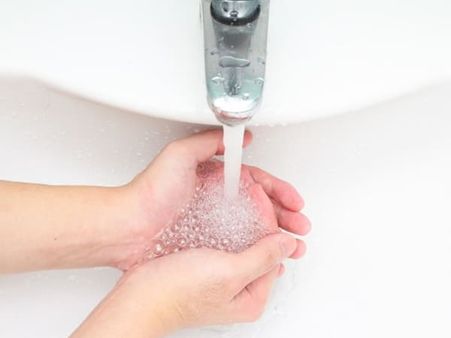
1. Wash your hands
The Centers for Disease Control and Prevention (CDC) recommends washing hands to reduce the number of germs to some extent. Wet your hands with clean, running water and apply soap. Lather your hands by rubbing together and rinse your hands well under running water.

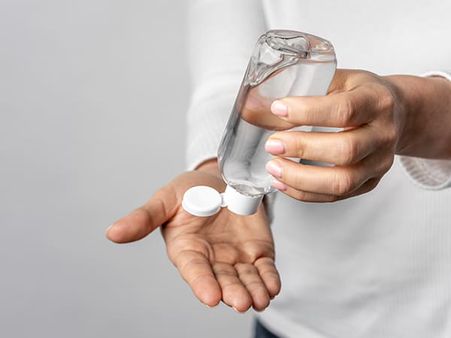
2. Use sanitizer on surface areas
When you are on the flight, use a hand sanitizer to wipe your seat, tray table and other areas that you are going to touch. Use the hand sanitizer frequently throughout the flight, especially after you use the washroom or lower the tray table to eat your meal. CDC recommends using a hand sanitizer with at least 60 per cent alcohol to avoid falling sick and spreading germs to others.

3. Wear a mask
Wearing a mask inside the flight will keep you protected from any germs in the air. When someone is coughing or sneezing beside you, tiny droplets are released in the air that can infect you. A face mask will protect your nose and mouth from splashes of body fluids and prevent you from falling sick.

4. Take the window seat
Opt for a window seat when you have to travel because if you are in the aisle seat, you are more likely to contract infections. The aisle seat puts you in an unsafe position where you are exposed to passengers passing you by.

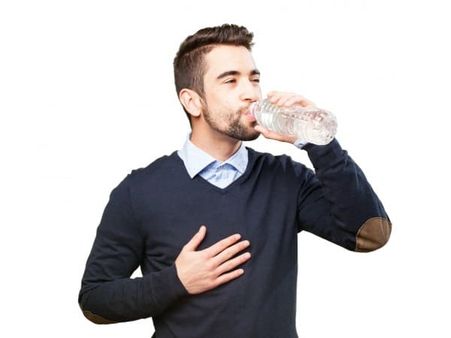
5. Keep yourself hydrated
Whenever you are travelling by air carry a bottle of water to keep yourself hydrated as depriving your body of water will increase the likelihood of contracting a viral or bacterial infection. Also, the humidity inside the flight drops by 10 per cent after take-off and the dry air can lead to drying of the mucous membranes in your nose and airways, thereby exposing you to germs. The mucous helps in trapping the germs and not allowing them to enter the body.
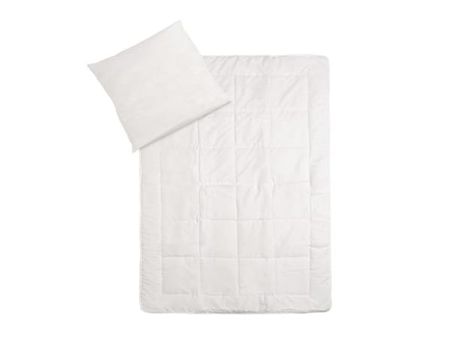
6. Bring your own pillow or blanket
Some airlines provide pillow and blankets to the passengers, which are re-used again and again and you don't know whether they are washed or not. So, to avoid falling sick bring your own pillow and blanket when you travel by flight.
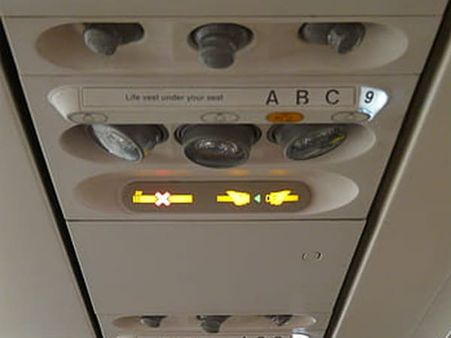
7. Control the airflow
The overhead air vent removes germs to some extent. If you are sitting beside a person who is sick, use the overhead air vent on a low setting to create an airflow that will move germs away.
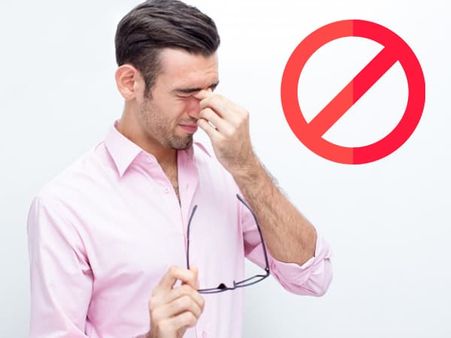
8. Avoid touching your nose, eyes and mouth
Germs easily spread when you touch your nose, eyes and mouth with fingers that are contaminated with viruses or bacteria. Keep your hands away from these exposed areas of the face to prevent yourself from getting infected.

9. Use a nasal spray
If you feel that your nose is drying out, use a nasal spray as it is effective in preventing infections. If the mucous membranes in your nose dry out it increases the risk of infections.

10. Use eye drops
Carry a bottle of eye drops as they will help relieve dry, itchy eyes making you less likely to rub your eyes with contaminated fingers.
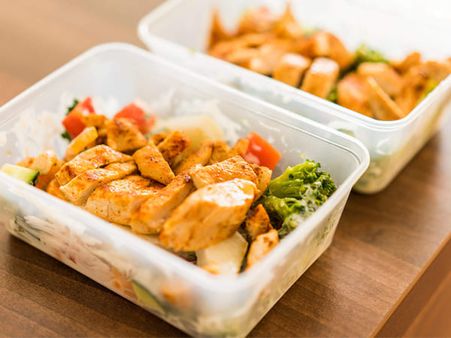
11. Carry your own food
While travelling by air, carry your own food as it will minimize the risk of infections and it is way healthier than the food served on the flight that has been through many hands.
Common FAQs
What medical conditions should you not fly with?
If you are suffering from chest pain, severe ear or nose infection, sinus problem or a severe chronic respiratory disease, you should avoid flying.
Does wearing a mask on a plane help prevent getting sick?
Wearing a mask inside the plane will prevent airborne infections and protect other passengers from getting sick if you are already infected.
How do you disinfect a plane seat?
Use a disinfectant antimicrobial wipe to wipe your seat to prevent yourself from getting infected.
Why do I get sick every time I fly?
If you come in contact with other sick passengers in the airport or on the flight, there is an increased risk of transmitting germs. Also, the airplane cabin and the lavatories are the breeding ground for germs that can make you fall sick.
-
 healthDon’t ignore! From Discomfort to Relief: Unveiling the Secrets of Vaginal Infections
healthDon’t ignore! From Discomfort to Relief: Unveiling the Secrets of Vaginal Infections -
 wellnessCOVID-19 Breakthrough Infection: What Are The Chances Of Being COVID Positive After Vaccination?
wellnessCOVID-19 Breakthrough Infection: What Are The Chances Of Being COVID Positive After Vaccination? -
 wellness11 Common, But No So Common Beard Problems And Ways To Treat Them
wellness11 Common, But No So Common Beard Problems And Ways To Treat Them -
 wellness15 Best Foods To Eat When You Have Stomach Flu
wellness15 Best Foods To Eat When You Have Stomach Flu -
 wellnessDaily Habits That May Increase The Risk Of Common Cold
wellnessDaily Habits That May Increase The Risk Of Common Cold -
 disorders cureSigns That Say It’s More Than Just A Common Cold
disorders cureSigns That Say It’s More Than Just A Common Cold -
 wellness21 Effective Natural Home Remedies For Fever
wellness21 Effective Natural Home Remedies For Fever -
 wellness15 Foods That May Help Prevent The Common Cold
wellness15 Foods That May Help Prevent The Common Cold -
 disorders cureVocal Cord Paralysis: Causes, Symptoms, Risk Factors, Diagnosis And Treatments
disorders cureVocal Cord Paralysis: Causes, Symptoms, Risk Factors, Diagnosis And Treatments -
 disorders cureCoxsackievirus Infection: Causes, Symptoms, Risk Factors, Treatments And Prevention
disorders cureCoxsackievirus Infection: Causes, Symptoms, Risk Factors, Treatments And Prevention -
 wellnessAre There Home Remedies For Blood In Stool?
wellnessAre There Home Remedies For Blood In Stool? -
 disorders cureOrchitis (Inflammation Of The Testicles): Causes, Symptoms, Risk Factors And Treatments
disorders cureOrchitis (Inflammation Of The Testicles): Causes, Symptoms, Risk Factors And Treatments


 Click it and Unblock the Notifications
Click it and Unblock the Notifications



